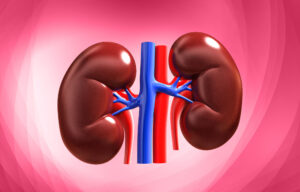Keeping urine can lead to kidney diseases – Dialysis Nurse
 Ms Nancy Abedi, a Dialysis Nurse at the International Maritime Hospital (IMaH), has cautioned people against holding on to their urine for long hours, saying the practice, could lead to the development of kidney diseases.
Ms Nancy Abedi, a Dialysis Nurse at the International Maritime Hospital (IMaH), has cautioned people against holding on to their urine for long hours, saying the practice, could lead to the development of kidney diseases.
She said that could lead to urinary tract infections, which could also cause some organisms and bacteria to multiply within the bladder, and further travel into the kidneys to cause its malfunctioning.
Ms Abedi was speaking on the topic “kidney disease,” at the weekly “Your Health! Our Concern! Organised by the Ghana News Agency (GNA) Tema Regional Office, to promote communication on health-related issues, to influence personal health choices by improving health literacy.
She said having underlying sicknesses and holding on to urine for a longtime increased the risk of ending up with a kidney disease some of which were chronic.
She said obstructed urine flow could back up into the kidney from the bladder, a process known as vesicoureteral reflux, and that this blocked urine flow, increased pressure on the kidney and undermined their functions.
She said obstructed urine flow could possibly also cause an enlarge prostate, kidney stones, and tumour.
“Humans need healthy kidneys to keep a balance of water and minerals such as sodium, potassium, and phosphorus in their blood, and remove waste from the blood after digestion, muscle activity, and exposure to chemicals or medications, she said.
“A healthy kidney also makes renin, which the body uses to help manage blood pressure, and produce a chemical called erythropoietin, for prompting the body to make red blood cells.
He said the crucial functions of the kidneys made them indispensable and must be maintained in good shape and therefore encouraged members of the public to take good care of their kidneys and reduce the risk factors that damaged this vital human organ.
Some other risk factors include hypertension, diabetes, over-exposure to some toxins, sickle cell disease, some medications, congenital kidney disease, age, and family history, with some signs of chronic kidney diseases being anaemia, blood in urine, dark urine, decreased mental alertness, decreased urine output, swollen feet, hands, and ankles.
Other symptoms are fatigue, hypertension, insomnia, persistent itchy skin, loss of appetite, male inability to get or maintain an erection, nausea, pain on the side or mid to lower back, panting, and sudden change in body weight.
Mr. Francis Ameyibor, the GNA Tema Regional Manager, expressed concern about the poor health information and lack of concerted efforts to educate the public on basic health issues.
He appealed to the media and health professionals to work together to educate the public against preventable sickness and healthy lifestyles.
Source: GNA
